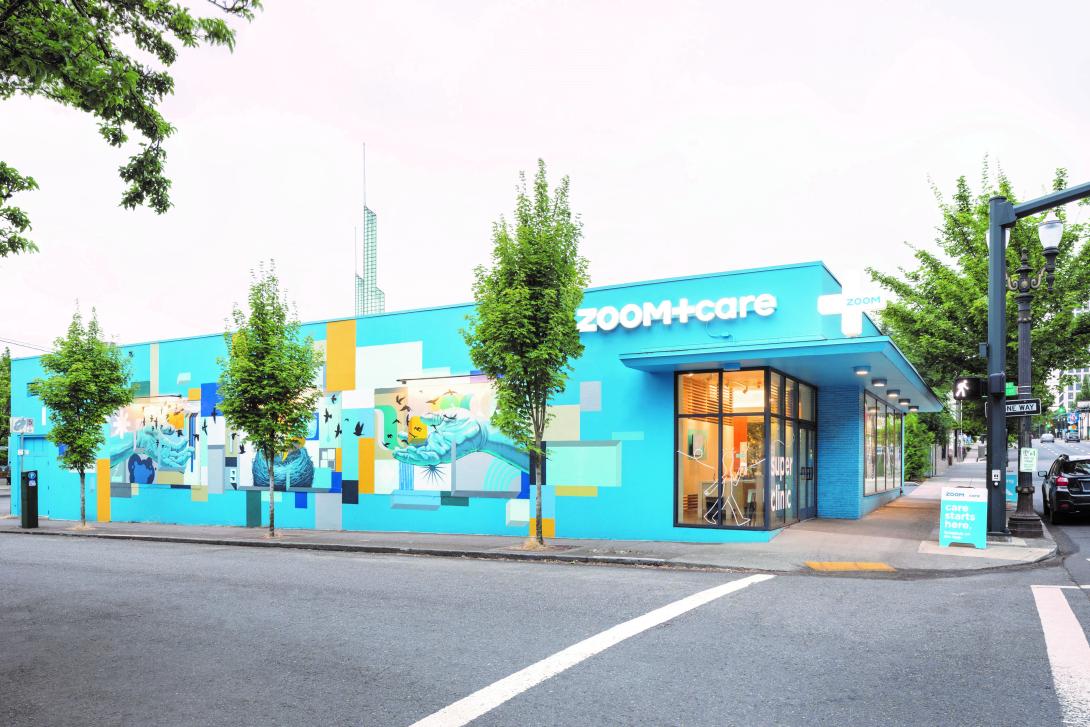
Zoom Care is trying to sell itself as a money-saver for one of Oregon’s largest Medicaid contractors. But so far, CareOregon is not buying.
Eric Hunter, president and chief executive of CareOregon, told The Lund Report that he’s open to working with any medical provider that can provide quality care at a reasonable price. But he said the insurer, which covers more than 200,000 Medicaid clients in the Portland area, was not interested in the Zoom deal that was proposed.
Dr. Dave Sanders, Zoom’s CEO, pitched the plan to Hunter in July. A Zoom spokesman declined to comment on the proposal.
Details are in a document recently obtained by The Lund Report. It said that Zoom, which operates a network of neighborhood clinics with specialists, urgent care facilities and primary care, could save CareOregon money.
The proposal said that Zoom’s “super clinics,” staffed by emergency physicians, would save CareOregon a significant amount of money on more costly emergency department visits.
The document estimates that CareOregon would reduce “low-value” emergency room visits by encouraging its members to visit Zoom instead. That alone, the proposal said, could save the Medicaid contractor between $12 million and $58 million per year.
“These numbers are not the same numbers that we see,” said Hunter, who characterized his conversation with Zoom as a discussion, not a negotiation.
“We hear from providers all the time. We’ll consider everything that works for our patients,” Hunter said. But he also noted that he was surprised to hear from Zoom, given the company’s past history.
Zoom was founded before the Affordable Care Act’s passage to provide quick medical access and price transparency. Patients can use a website or an app to book appointments and access their medical records. The cost of each procedure is spelled out clearly. For years, leaders at Zoom were vehement about their fixed pricing and approach to holding down administrative costs. Sanders said openly that Medicare and Medicaid contracts did not fit with his company.
That began to change last year – though Hunter suggested Zoom made some tactical missteps along the way.
“Last year, David (Sanders) announced that he was working with FamilyCare and CareOregon on a Medicaid contract. That was news to us at the time,” Hunter said. “We met with them and realized it was not a fit for us and our network. They are more commercial-based. We hadn’t heard from them for a long time. Then they came to us about their urgent care sites.”
This year FamilyCare ceased operating a Medicaid plan, leaving Health Share the only coordinated care organization serving the greater Portland metro area. Coordinated care organizations were created in 2012 to essentially act as local Medicaid insurers in Oregon.
Most areas have one or two. In the metro area, Health Share relies on four organizations, including CareOregon, to care for members. CareOregon pays for physical health care for its clients in the Portland area – while other contractors provide dental and behavioral health services for those members.
Kaiser Permanente, Providence and Tuality Healthcare also contract with Health Share in the same role as CareOregon, providing Medicaid coverage for a portion of Portland-area residents. Hunter speculated that Zoom would not likely reach out to them because each has a closed provider network and a business model that does not align with Zoom’s.
Zoom’s broader focus on pay-per-procedure is in direct contrast with the Oregon Health Authority’s push to compensate Medicaid providers for results, not exams and lab tests. CareOregon uses primary care providers to coordinate care among other medical specialists as part of this philosophical approach.
“That’s one of the reasons the conversations we are having with them are purely about urgent care and things that are unforeseen,” Hunter said. ”We really do rely on our primary care home model.”
Hunter said he saw some potential in an arrangement that gave patients access to urgent care in geographic areas where there are few options otherwise.
“I don’t believe my network has any gaps, but in urgent care, proximity matters,” Hunter said. “We have to consider: Are there locations that make it easier for folks to get folks the services they need?”
Zoom’s proposal suggested a three-year contract with CareOregon that would start in 2019. That timeline could prove challenging for the Medicaid provider, which expects to get a new five-year plan from the state next year, as the Oregon Health Authority updates its approach to coordinated care.
Hunter said Zoom’s estimates were off base and assumed a far higher cost of emergency care than CareOregon’s internal assessment. He also noted that in the past, Zoom’s leadership has scoffed at working with Medicare or Medicaid.
Hunter said any contractual relationship between the two companies, if one does emerge eventually, would be a long way off. “I have to take them at their word that they truly are interested in serving the Medicaid population,” Hunter said. “Whether they do it with us or not, I don’t know. We haven’t gotten that far.”
Reach Courtney Sherwood at [email protected].